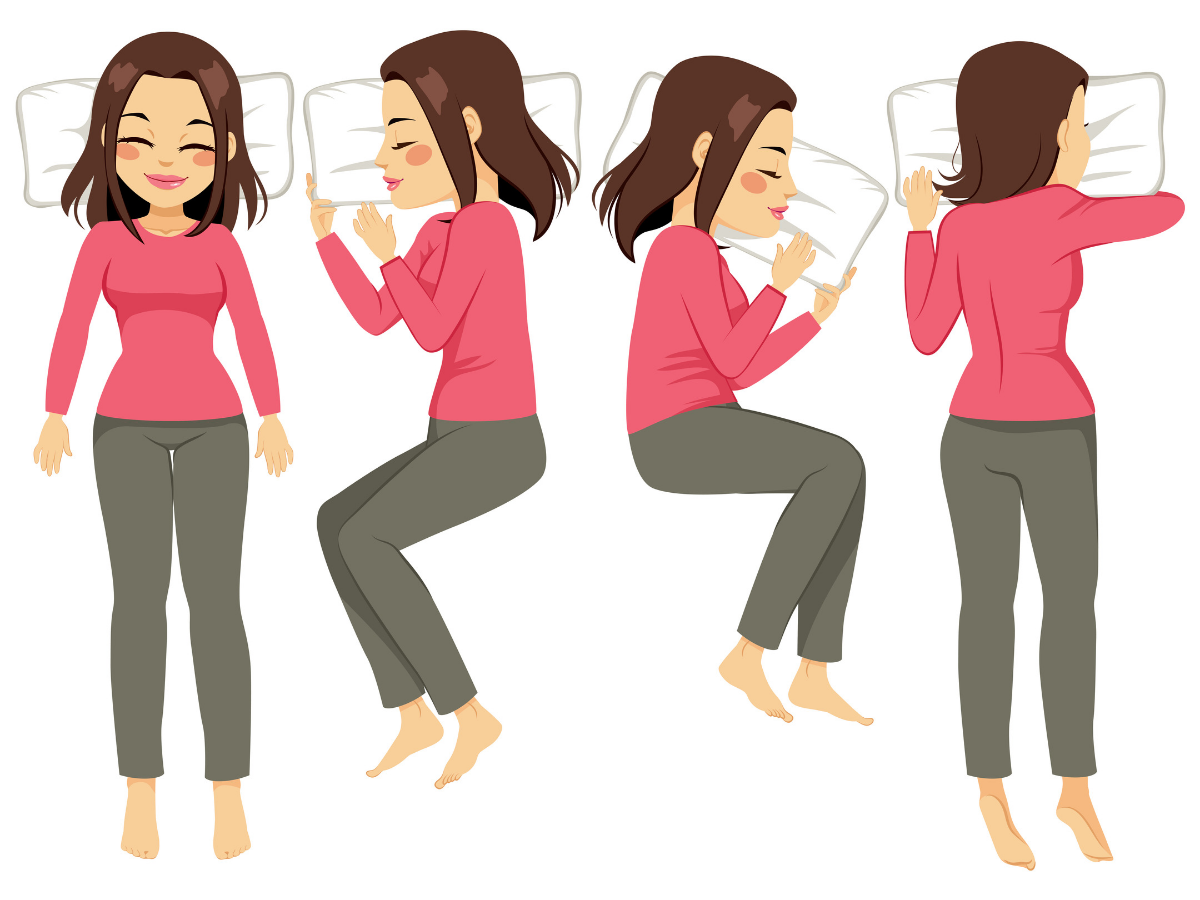
In the quest for a night of deep and restful sleep, there’s more to consider than just a cozy blanket and a quiet room. The way you position your body during sleep, combined with the right mattress, can significantly influence the quality of your slumber. The intricate relationship between sleep positions and mattresses goes beyond comfort—it directly affects spinal alignment, pressure point relief, and overall well-being. This comprehensive exploration delves deeper into the science of sleep positions and how to select the ideal mattress for your unique sleeping style.
The Significance of Sleep Positions
The posture in which you sleep can have a profound impact on your health. Each sleep position—back, side, and stomach—offers its own advantages and challenges. By understanding the physiological implications of these positions, you can make informed decisions about the type of mattress that will best support your sleep needs.
Back Sleeping
Back sleeping is often hailed as the “gold standard” position for maintaining proper spinal alignment. When you lie on your back, your weight is evenly distributed, which can help prevent excess strain on your neck and back. The key is to find a mattress that complements this alignment. Medium-firm mattresses are generally recommended for back sleepers. They provide enough support to keep your spine in its natural curve while offering a touch of cushioning for optimal comfort.
To enhance the experience, consider memory foam or latex mattresses. These materials conform to the contours of your body, ensuring that every inch is cradled with care. This conformity promotes even weight distribution, thus reducing the risk of pressure points and promoting a peaceful night’s sleep.
Side Sleeping
Side sleeping is a popular choice and has its merits, such as reducing snoring and alleviating sleep apnea symptoms. However, it can lead to pressure points on the hips and shoulders due to the concentrated weight on these areas. For side sleepers, mattress selection is a delicate balancing act. A slightly softer mattress is often preferred, as it helps cushion the shoulders and hips.
Memory foam mattresses shine in this department. Their ability to contour to your body’s unique shape provides unparalleled pressure relief. Look for a mattress that combines this feature with targeted support zones. These zones ensure that your hips and shoulders receive the cushioning they need while maintaining proper alignment for your spine.
Stomach Sleeping
While stomach sleeping can be comfortable for some, it poses challenges in maintaining a neutral spinal position. Stomach sleepers often face issues with their lower back and neck due to potential overextension. To mitigate these concerns, a firmer mattress is generally recommended. This firmness level prevents excessive sinking of the hips, which can lead to misalignment.
Innerspring mattresses can be a good fit for stomach sleepers. They provide a firm surface with a bit of bounce, helping to keep your body supported and your spine aligned. However, if you prefer a more cushioned feel, hybrid mattresses offer a balanced compromise between support and comfort.
Customized Comfort for All Sleep Styles
The journey to a perfect night’s sleep is a deeply personalized one. To select the right mattress for your sleep style, consider the following steps:
Evaluate Your Current Mattress
Begin by assessing your current mattress. Are you waking up with discomfort or stiffness? This could be a sign that your mattress is not adequately supporting your preferred sleep position.
Identify Your Dominant Sleep Style
Recognize your primary sleep position—back, side, or stomach. While most people change positions during the night, focus on your main preference to guide your mattress selection.
Delve into Mattress Types
Different mattress types offer distinct benefits. Memory foam mattresses excel in conforming to your body’s shape, making them ideal for side sleepers. Innerspring mattresses provide responsive support, often favored by back sleepers. Hybrid mattresses blend these features, making them a versatile choice for various sleep styles.
Balance Firmness Level

The firmness of your mattress plays a pivotal role in maintaining spinal alignment. Medium-firm mattresses suit back sleepers, while slightly softer options cater to side sleepers. Stomach sleepers benefit from medium-firm to firm mattresses.
Seek Targeted Support
Modern mattresses often feature zoned or targeted support. These mattresses integrate varying levels of firmness across different areas to address specific pressure points. Such designs contribute to proper spinal alignment and enhanced comfort.
Tame Motion Transfer
For couples, motion isolation is a crucial consideration. Mattresses with effective motion isolation prevent disturbances caused by movement, ensuring a peaceful night’s sleep for both partners.
Conclusion
As you embark on the journey to improve your sleep quality, remember that the science of sleep positions is a vital piece of the puzzle. The relationship between your sleeping style and your mattress is a dynamic one that requires thoughtful consideration. The right mattress from Casper has the power to transform your sleep experience by promoting proper spinal alignment, reducing pressure points, and enhancing overall comfort. By understanding the needs of your preferred sleep position and aligning them with the features of different mattress types, you can unlock a world of rejuvenating sleep. Elevate your sleep routine by choosing a mattress that supports your unique sleeping style, and embark on a path to more restful and revitalizing nights.




